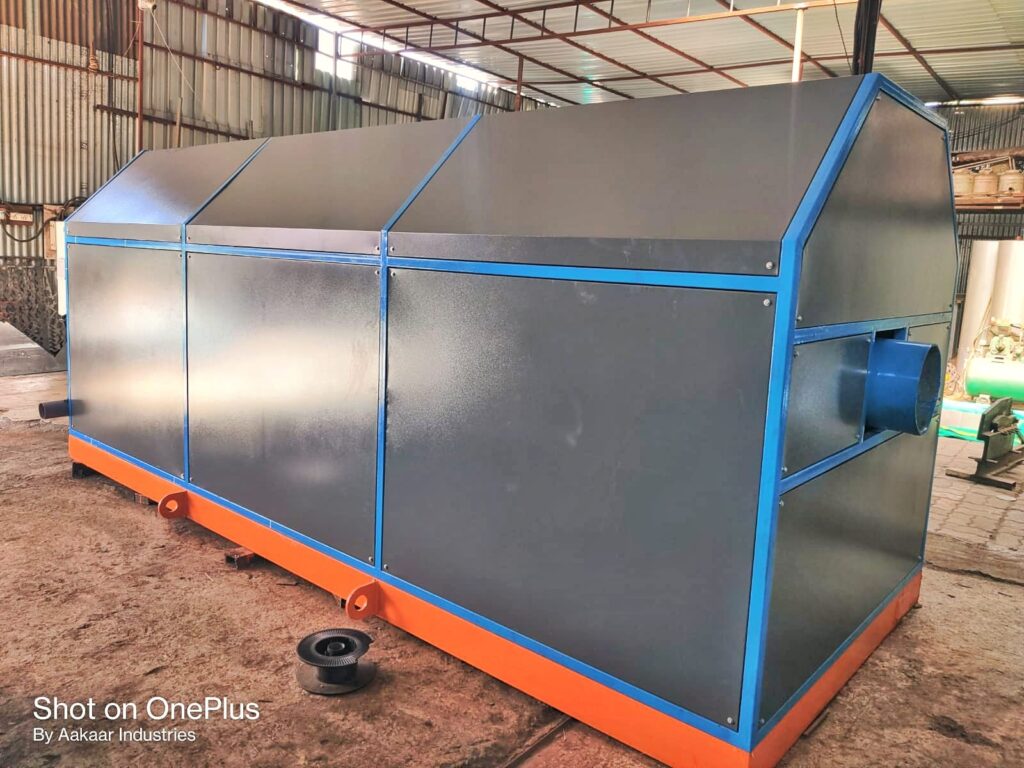Fully-Automatic OWC Machines
Organic Waste Composting (OWC) machines offer a sustainable solution for managing organic waste by converting it into nutrient-rich compost.

Precautions for Using OWC Machines:
- Read the Instruction Manual: Familiarize yourself with the operation and safety instructions provided by the manufacturer before using the OWC machine. Follow recommended guidelines for installation, maintenance, and troubleshooting.
- Wear Personal Protective Equipment (PPE): When handling organic waste or operating the OWC machine, wear appropriate PPE, including gloves, goggles, and a mask, to protect against potential hazards such as dust, allergens, and bacteria.
- Avoid Overloading: Do not overload the OWC machine with excessive amounts of organic waste beyond its capacity. Follow recommended loading limits to ensure proper composting and prevent strain on the machine’s components.
- Monitor Temperature and Moisture Levels: Regularly monitor temperature and moisture levels inside the composting chamber to ensure optimal conditions for microbial activity. Adjust settings as needed to maintain the ideal environment for composting.
- Proper Ventilation: Ensure adequate ventilation around the OWC machine to prevent the buildup of odors and gases. Install the machine in a well-ventilated area or use exhaust systems to dissipate any fumes generated during composting.
- Keep Children and Pets Away: Restrict access to the OWC machine to authorized personnel only and keep children and pets away from the composting area to prevent accidents or injuries.
- Regular Maintenance: Perform regular maintenance tasks as recommended by the manufacturer, such as cleaning, lubrication, and inspection of moving parts. Address any issues promptly to prevent breakdowns and ensure continuous operation.
- Follow Electrical Safety Precautions: If the OWC machine is electrically powered, observe proper electrical safety precautions, such as grounding, using GFCI outlets, and avoiding exposure to water or moisture.
- Emergency Preparedness: Have emergency procedures in place in case of malfunctions, power outages, or other unforeseen events. Maintain contact information for technical support and emergency services.
- Training and Education: Provide training and education to personnel responsible for operating the OWC machine, covering safety protocols, proper usage, and maintenance procedures. Ensure that all users are aware of potential risks and know how to respond to emergencies.
Guidelines for Composting Materials:
What to Put In:
- Fruit and vegetable scraps
- Coffee grounds and tea bags
- Eggshells
- Yard trimmings and grass clippings
- Paper towels and napkins (unbleached)
- Plant-based food leftovers
- Shredded cardboard and paper
What Not to Put In:
- Meat, fish, and dairy products (may attract pests and cause odors)
- Oily or greasy foods (can disrupt composting process)
- Diseased plants or weeds with seeds (may spread pathogens or invasive species)
- Non-biodegradable materials such as plastic, metal, glass, or synthetic fibers
- Coal or charcoal ash (may contain harmful chemicals)
- Pet waste (may contain pathogens harmful to humans)
By following these precautions and guidelines, users can safely and effectively operate OWC machines to transform organic waste into valuable compost, contributing to sustainability and environmental stewardship. Remember that responsible composting practices benefit not only the environment but also communities and future generations.

